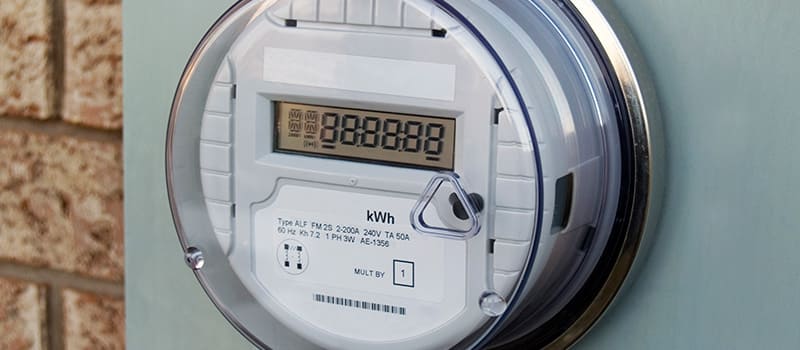Get a great deal on your home energy plans

What you need to know about smart meters
Smart meters for electricity usage were installed in Victoria as part of a mandatory roll-out. However, in NSW, SA and Queensland, smart meters are only mandatory for newly built homes and in older homes when the existing electricity meter reaches end-of-life or is faulty and needs to be replaced. Smart meters don't only provide greater insight into energy usage in your home, they also make it easier for energy providers to get accurate readings of your usage. But that is only a small part of what you need to know about smart meters.
What is a smart meter?
A smart (digital) meter is an advanced type of electricity meter that digitally measures your home's energy usage in intervals. Instead of only measuring how much electricity is being used, a smart meter is also able to measure when electricity is used, giving insights in usage patterns, and making time-of-use pricing possible. Smart meters can also electronically communicate your electricity usage to your electricity provider, eliminating the need for a meter reader to take manual readings.
Are smart meters worth having?
Just giving you more detailed information about your home's electricity usage, including the times when electricity usage peaks, makes a smart meter worth having. But the benefits to consumers and electricity providers extend beyond that:
- They make remote connections and disconnections possible, eliminating delays and additional costs when moving home or switching to a new energy provider.
- They make remote monitoring of electricity supply easier, allowing providers to detect outages faster, and to also detect problems in the quality of the electricity supply.
- By providing a more detailed view of electricity usage patterns, electricity providers are able to design and offer more innovative services, such as time-of-use pricing.
- This same usage information also benefits consumers, allowing them to adjust their behaviour to better manage their electricity usage in and outside of peak periods.
- Assist consumers wanting to install solar energy & battery storage systems. Better knowledge of usage patterns can assist with determining battery storage requirements, by way of example.
- Better, more accurate billing. If electricity usage is communicated to your provider, there is no need for a meter reader to take a manual reading, or to estimate usage if they can't access the meter.
How do I get a smart meter?
The rollout of smart meters into all homes was only mandatory in Victoria. In other states and territories, smart meters are mandatory in newly built homes, or when an older electricity meter reaches end-of-life or is faulty and needs to be replaced. However, some electricity providers allow their customers to request an unscheduled switch to a smart meter, though this depends on availability and could attract a cost that the consumer has to cover. You could also find that a smart meter is part of the contract when signing up with a new electricity provider, or a smart meter deployment is scheduled in your neighbourhood. Speak to your provider to find out if they offer smart meter installations on request.
What if I don't want a smart meter?
It is possible to opt-out of being switched to a smart meter if it is offered as part of a deployment in your neighbourhood. Though this does depend on you not having waived your right to opt-out when signing an electricity supply contract. Electricity retailers are required to give you advance notice of any smart meter deployment in your area, along with two written notices regarding your ability to opt-out of the installation.
However, if you are moving into a newly built home, or your current meter has reached the end of its life or is faulty, it is mandatory for a smart meter to be installed. In some instances, you can request that the remote communications ability of the smart meter be disabled, though this could incur additional costs to you since meter readings will still need to be carried out manually.
Can a smart meter help me find a better electricity plan?
Not on its own, but by accessing data about electricity usage in your home you will be able to see when usage spikes and dips across each day. Proper analysis of this can not only help you adjust your behaviour to reduce peaks in usage, but to also look at the electricity plans available in your area to determine if there is one offering better rates for your usage patterns. At first glance a flexible tariff plan might be appealing but will only save you money if most of your usage happens outside of peak periods and the off-peak electricity tariff is lower than your current tariff. Requesting your usage data and trends from your retailer or distributors can be easy. Once your retailer or distributors provide the data enter it into comparison sites to find what plans suit you. If you have a smart meter, you’ll be able to use Energy Made Easy to compare energy providers.
Can I access information about my electricity usage?
All consumers with a smart meter in their homes can access information about their electricity usage. How they do so depend on the smart meter they have installed and who their energy retailer is. If your smart meter also has in in-home display attached, you will be able to use this to see how much electricity you are using and how much it is costing you per hour. If it does not have an in-home display attached, check with your electricity provider if your smart meter supports the addition of an in-home display, and whether there is an incentive for installing one. Many energy providers provide access to energy usage data via your account through an online portal or app, or via email on request.